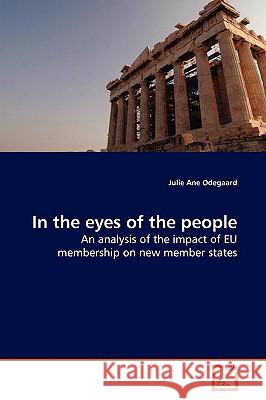In the eyes of the people » książka
In the eyes of the people
ISBN-13: 9783639176872 / Angielski / Miękka / 2009 / 100 str.
On the first of May 2004 ten new countries became members of the European Union bringing 75 million people into the Union, and the expansion was the largest and most ambitious in the history of the EU. Considering the maze of complexities linked to the countries different political, economic and historical contexts, this enlargement was an especially tangled case. Based on the citizens perceptions of the benefits of EU membership the question addressed is: What can explain whether or not the EU membership is considered a country benefit? This study moves beyond the predominant single-case design in enlargement research, and uses a comparative approach analyzing the impact of EU enlargement on the Central European, Eastern European and Mediterranean states.
On the first of May 2004 ten new countries becamemembers of the European Union bringing 75 millionpeople into the Union, and the expansion was thelargest and most ambitious in the history of the EU.Considering the maze of complexities linked to thecountries different political, economic andhistorical contexts, this enlargement was anespecially tangled case. Based on the citizen`sperceptions of the benefits of EU membership thequestion addressed is: What can explain whether ornot the EU membership is considered a country benefit? This study moves beyond the predominant single-casedesign in enlargement research, and uses acomparative approach analyzing the impact of EUenlargement on the Central European, Eastern Europeanand Mediterranean states.











